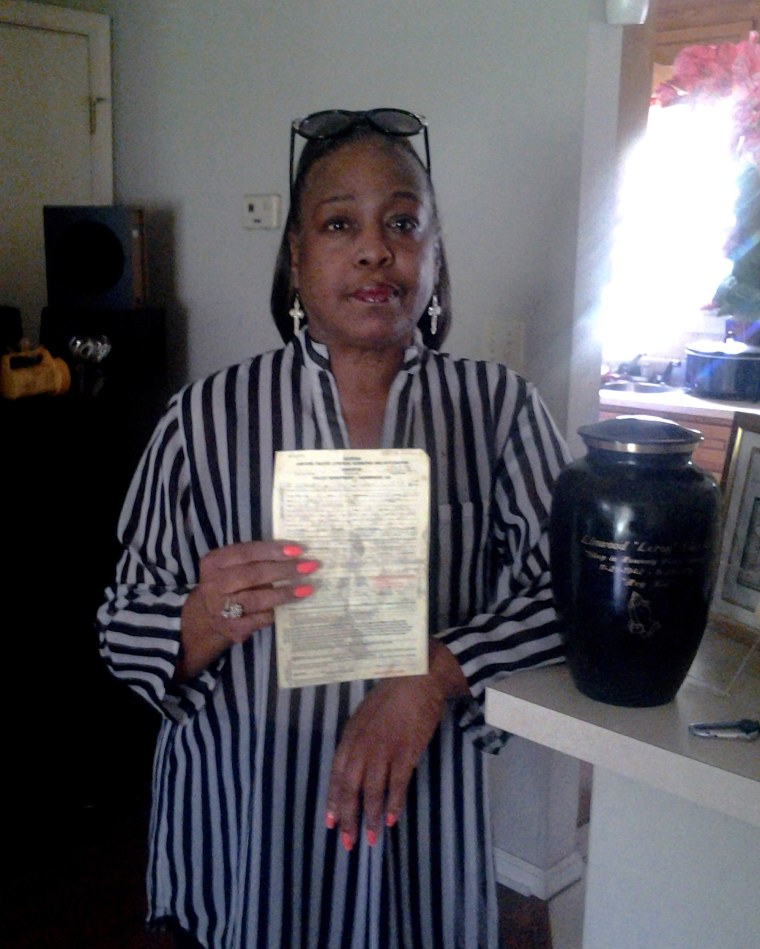A private company in south Georgia has threatened, detained and jailed poor residents who could not pay court-ordered fees and fines, according to a new civil rights lawsuit — the latest of more than a dozen cases against money-making probation firms across the southeast.
The federal lawsuit filed Friday by the non-profit Southern Center for Human Rights claims employees of Red Hills Community Probation, which contracts with courts to collect fines, coerced payment from indigent residents of Pelham and Bainbridge, Georgia.
Follow NBC News Investigations on Twitter and Facebook.
Residents have been illegally detained within court buildings and jails, until they or a family member paid a portion of their debt to get them freed, the suit charges. In one case, an intellectually disabled man who admitted burning leaves was locked up when he couldn’t come up with the cash.
“Red Hills probation officers hold poor people for ransom over traffic tickets, while their families scramble to come up with money to secure their release,” said attorney Sarah Geraghty of the Southern Center. “Practices like this one erode public confidence in law enforcement and undermine the integrity of the court system.”
Across Georgia and other southern states, probation companies contract with courts to supervise ensure people convicted of low-level crimes pay court debt. Probationers must also pay a monthly supervision fee to the company, typically between $20 and $40. Those who do not keep up with payments may be found to be in violation of their probation, and sent to jail.
Supporters of the industry say it allows courts to collect much-needed revenue, and lets probationers to pay over time. Opponents have likened private probation to a “debtors prison.”
The Southern Center alleges that unlike many companies, Red Hills demanded money immediately. Those who could not pay were illegally detained or jailed, it claims, in violation of laws that require defendants have a hearing to determine that they had “willfully” failed to pay before they can be locked up.
Adel Edwards was one such case.
In April 2013, 54-year-old Edwards, who is intellectually disabled, pleaded guilty in the municipal court of Pelham to burning leaves in his yard without a permit. The judge, who also oversees the court in Bainbridge, fined him $500. Edwards’ sole income comes from food stamps, and he could not pay his fine that day. He was placed on probation for a year, adding $44 a month in supervision fees to his debt.
After sentencing him, the judge told Edwards to meet with representatives of Red Hills, who work in the courtroom. According to the lawsuit, they told him he owed not $500 but $1,028 -- his fine, plus 12 months of probation fees. Edwards had no money, so he went to jail, where he remained for several days until a friend paid $250 to get him released.
Vera Cheeks was not jailed, but she too claims she was detained until she paid. In 2014, the 52-year-old was fined $135, plus $132 in supervision fees and costs, for failing to fully stop at a stop sign in Bainbridge.
In the probation room behind the courtroom, Red Hills employees allegedly told her she could not leave until she paid $50. According to the complaint, Cheeks’ fiance pawned her engagement ring and his lawn equipment to set her free.
Georgia has the nation’s largest misdemeanor private probation system. More than 30 licensed companies oversee about 140,000 probationers. But it has faced increasing criticism, including from a state audit last year that found widespread flaws.
At least one company, now shuttered, is under criminal investigation, and more than a dozen lawsuits against several companies are pending.
Last week, one of Georgia’s largest companies agreed to settle one of the earliest suits, which had dragged through the courts for five years.
It was the case of Hills McGee, a mentally ill veteran, who was jailed for two weeks in 2010 because he could not pay $186 in fees the company said he owed in fees. More than a dozen other cases against the company were filed after McGee’s.
While Sentinel did not respond to request for comment, McGee’s attorneys said he will receive a settlement of nearly $75,000. Other lawsuits are ongoing.
